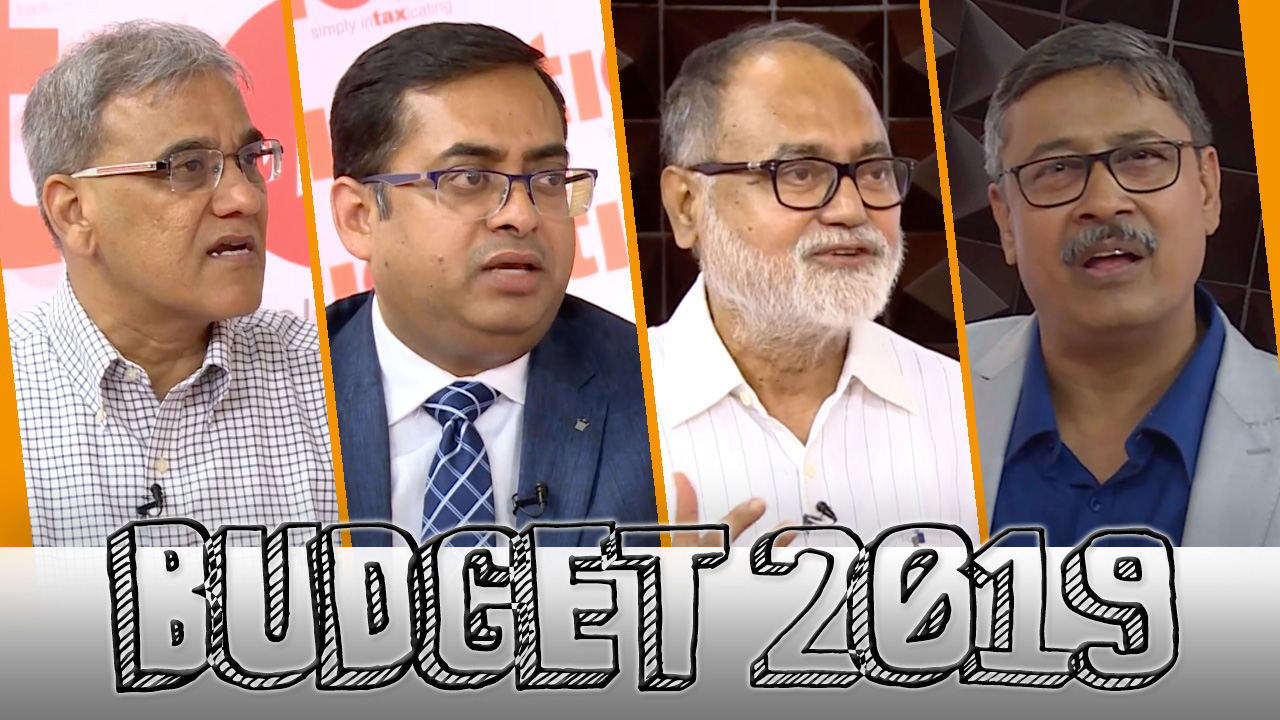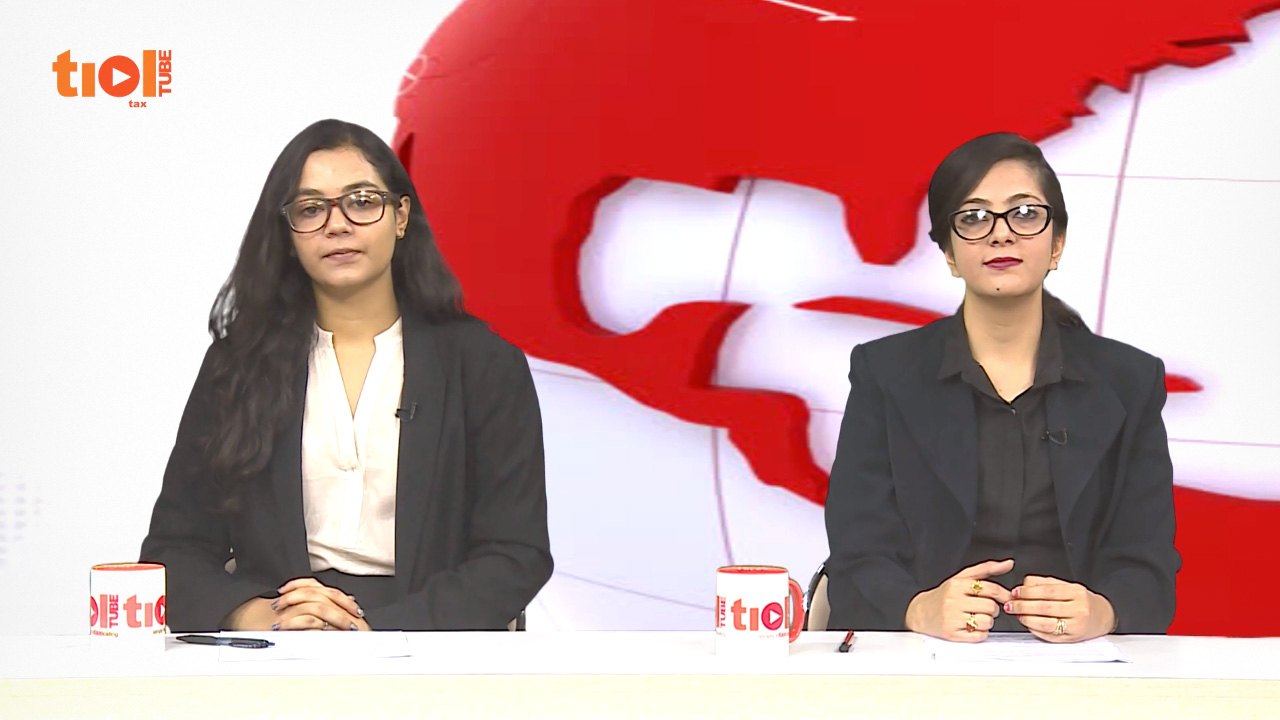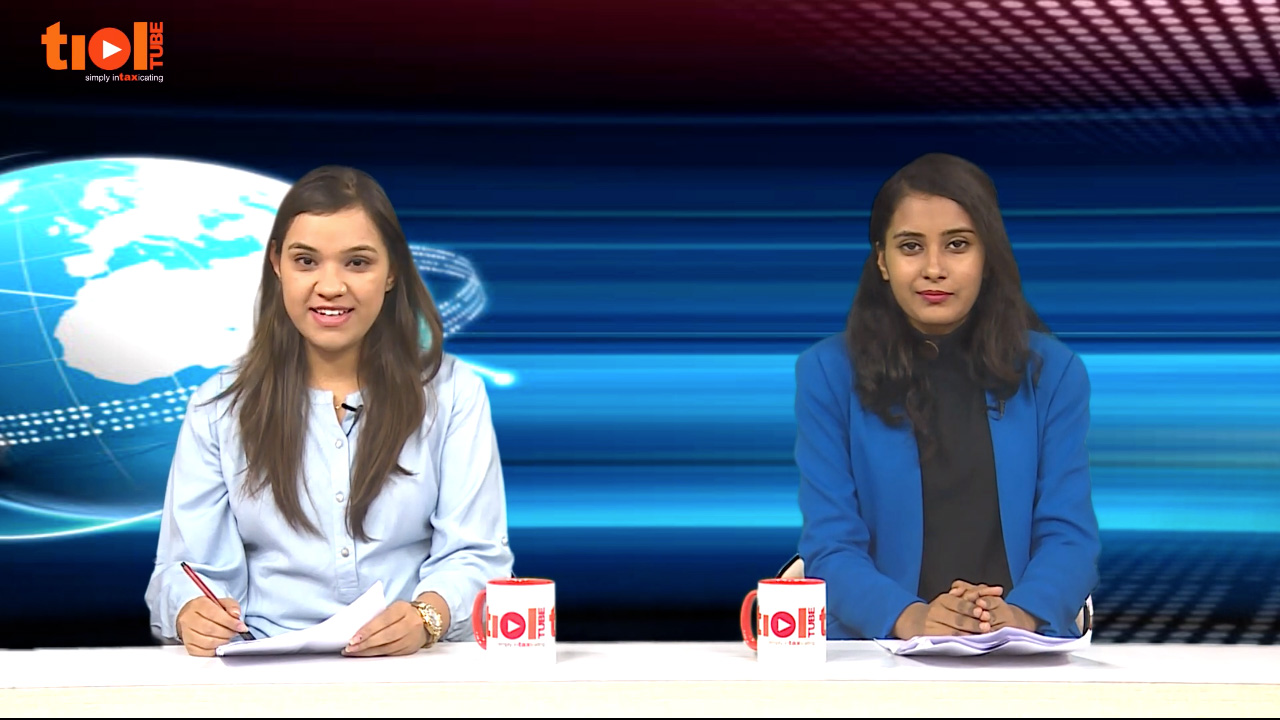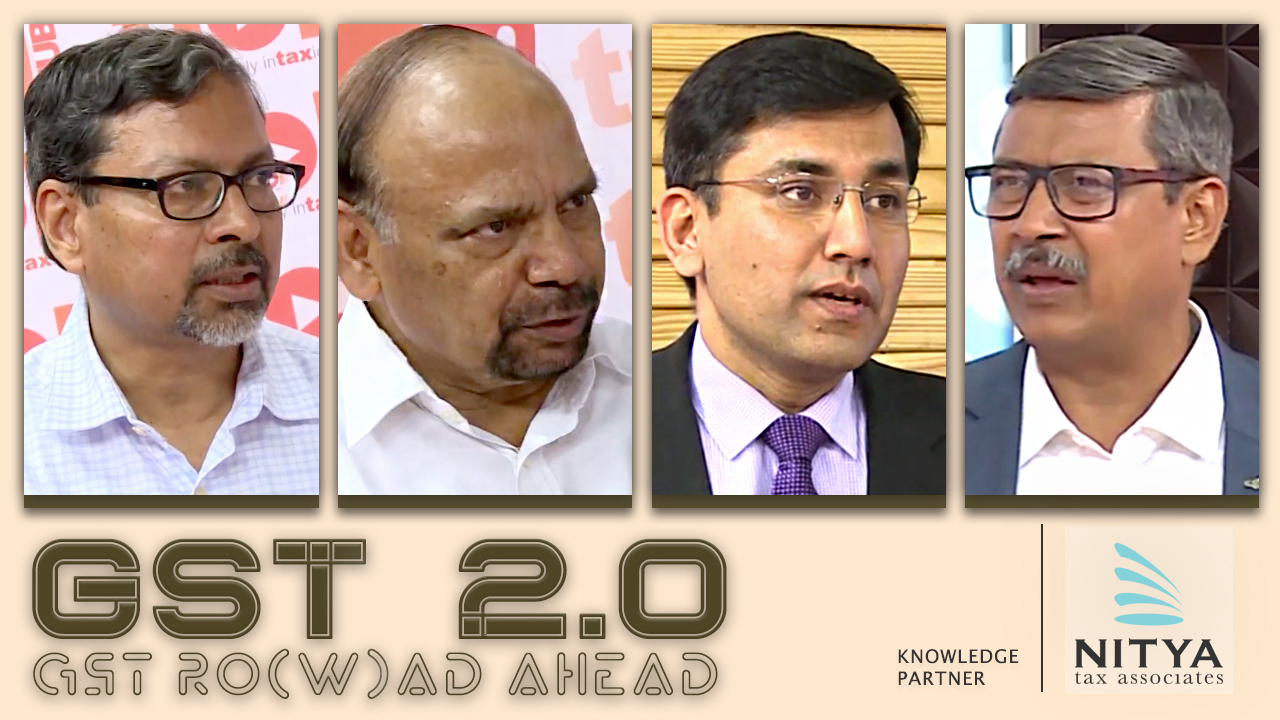|
SERVICE TAX
Citadel Videos Vs CCE
ST - Demand of service tax in respect of Video Tape Production / Programme Production Service & Renting of Immovable property service - it is evident that the appellants had made a submission before the authority that in most of the bills they had failed to collect service tax, however the actual data as to how much amount was collected as service tax is not made available - adjudicating authority has also made an observation that actual quantification of the service tax collected and taxable value on which no service tax was collected, are not available on records - appellant should be given one more opportunity to produce all the relevant documents in support of the claim made before the Bench that their actual receipts and payments are in fact much lower than the tax liability worked upon in consequence - benefit of cum- tax in respect of those amounts where service tax has not been collected from the service recipients is to be extended by the adjudicating authority - no interference made in respect of imposability of penalty under Section 78 ibid, however, the same will be commensurate to the revised tax liability that may emerge after denovo proceedings - Matter remanded: CESTAT [para 5.1, 5.2]
- Matter remanded: CHENNAI CESTAT 2019-TIOL-1751-CESTAT-MAD
Global Gas Cylinders Ltd Vs CCE & ST
ST - The assessee-company manufactures Gas cylinders & is registered for providing Management, Maintenance or Repair Service - Upon audit for the relevant period, the Revenue noted there to be short-payment of service tax on said service, wrongful availment of Cenvat credit on account of the documents being improper, non-payment of service tax on BAS, Non-inclusion of value of consumables in the maintenance work leading to short payment of tax, non-payment of service tax on commission received, non-payment of service tax under GTA service, non-payment of interest on belated payment of service tax - SCNs were issued proposing duty demand with penalties - These were confirmed upon adjudication - Hence the present appeal.
Held: MMR service - The services involved bear the nature of composite works contract including supply of material - Considering the decision of the Apex Court in CCE Vs L&T Ltd., the duty demands raised warrant being quashed - Job Work charges - The assessee provided such service to one M/s Greaves Cotton Ltd on goods supplied by the latter - The assessee submitted a letter from M/s Greaves Cotton certifying that the assessee performed job work for it which was of the nature of fabrication work - During the disputed period, service tax is required to be paid on receipt basis but the SCN proposed to demand service tax even on amounts not received - Hence the assessee correctly asserts that the demand pertaining to the outstanding amount is unsustainable - Hence demand related to BAS does not survive as well - The demand related to GTA service & interest liability is accepted by the assessee & so is upheld - Moreover, the demand in respect of consumables used in composite contracts is set aside as well - Penalty - It is undeniable that there is some confusion in respect of the demands raised during the disputed period - Hence it cannot be said that service tax was evaded on account of wilful suppression or mis-statement - Hence the penalty imposed is unsustainable: CESTAT
- Assessee's appeal partly allowed: CHENNAI CESTAT
CENTRAL EXCISE
2019-TIOL-1276-HC-MUM-CX
Kopran Ltd Vs CESTAT
CX - Show Cause Notice was issued to Kopran Limited demanding excise duty, interest and penalty, inter alia, on the ground that excisable goods were removed from its factory premises to the factory premises of DPPL, without payment of excise duty and compliance with prescribed legal procedures – appellant had contended that the goods in question were removed for purpose of reprocessing on job work basis; that batch numbers of the goods as well as the other details were available and all this material militates against any inference on clandestine removal of the goods with an intention to evade payment of excise duty – Tribunal had also upheld the demand and, therefore, appeal before the High Court.
Held: Bench is satisfied that inference of clandestine removal of goods drawn concurrently by all the three authorities is not based merely on absence of any challan, under cover of which the goods are normally required to be removed, however, the inference is mainly on account of absence of contemporaneous record backing the theory that the goods were removed for purposes of reprocessing by DPPL on job work basis - The record indicates that Kopran Limited has a well organised system for documentation, when it comes to record of receipt of raw materials, production, stores and despatch, however, when it comes to goods in question, such documentation, is just not to be found - Even contemporaneous records such as entries in loading Register, Gate outward Register and Returnable Register make no entries in relation to the goods in question - This is certainly a circumstance which is required to be held against the appellants - Taking into consideration the limits of jurisdiction under Section 35G of Central Excise Act, 1944, it is really not open to the Bench to re-appreciate or re-evaluate the material on record, as if High Court were exercising first appellate jurisdiction – In his statement, Arvind Dhavale of M/s. DPPL speaks about transfer of goods since a snake had entered the storeroom and which hardly supports the theory put forth by the appellants – The scope of an appeal under Section 35G of Central Excise Act, 1944, is quite limited - The appellants have to make out a case of involvement of a substantial question of law in the context of challenge to findings of fact, perhaps, such a case can be made out only if perversity is demonstrated - In the present case, there is sufficient material on record to sustain the findings of fact recorded by three authorities concurrently - View taken by the Tribunal is certainly a plausible view based upon the material on record - appeals give rise to no question of law, much less, any substantial question of law – appeals dismissed: High Court [para 12, 14, 15, 16, 17]
- Appeals dismissed: BOMBAY HIGH COURT
2019-TIOL-1759-CESTAT-CHD
Groz Beckert Asia Pvt Ltd Vs CCE
CX - CENVAT credit availed on Courier service is denied on the ground that the appellant is selling goods at their factory gate - appellant submits that they are sending the goods through courier and in case the buyer refuses to take delivery, the goods were returned by courier to them and in this circumstance, credit is entitled.
Held: In this case, the goods were sold through courier and till the goods are delivered to the buyer, the appellant is the owner of the goods, as in case, buyers refuse to take the delivery of the goods, it is the duty of the courier to return back the goods to the appellant - In that circumstance, Bench holds that the goods have been delivered by the appellant at buyer's place and the place of buyer is the place of removal in facts and circumstances of the case - CENVAT credit has been rightly taken - appeals are allowed with consequential relief: CESTAT [para 5, 6]
- Appeals allowed: CHANDIGARH CESTAT
2019-TIOL-1749-CESTAT-BANG
Ashok Iron Works Pvt Ltd Vs CCT & CE
CX - The assessee is engaged in manufacture of excisable goods i.e. raw castings and CI machined components and are availing the facility of CENVAT credit - During audit, it is noticed that the assessee have not paid service tax on Manpower Recruitment and Supply/Security services inasmuch as the service provider of these services have raised invoices in the name of assessee - The service provider paid service tax on 25% of value of the service - The assessee being a service receiver has not paid service tax on the 75% of assessable value of security service/manpower service on reverse charge mechanism - On being pointed out, the assessee paid service tax on the same and availed CENVAT credit on the said amount - On these allegations, a SCN was issued for demanding service tax along with interest and penalty - Bar under Rule 9(i)(bb) of CCR, 2004 is not applicable to the transaction where service receiver is paying service tax under reverse charge mechanism on GAR-7 challan and is taking the credit thereof on the basis of said challan - Further, in the case of Polygenta Technologies Ltd. , this Rule has been upheld and assessee was held entitled to take the credit - There cannot be any suppression to evade the tax once the assessee is entitled to take CENVAT credit of same thereby renders the whole situation as revenue neutral - Mere omission on the part of assessee has been treated as suppression of facts with mala fide intention to evade the payment of tax which is not justified in law - Further, assessee after being pointed out by audit, paid the service tax along with interest and informed the Department and also declared these facts in their ST-3 returns for the relevant period - Therefore, extended period cannot be invoked - The impugned order is not sustainable in law: CESTAT
- Appeal allowed: BANGALORE CESTAT
2019-TIOL-1748-CESTAT-HYD
Elegant Chemicals Enterprises Pvt Ltd Vs CC, CE & ST
CX - The demand of differential central excise duty on assessee and imposition of penalty on assessee no. 2 is based upon the allegation and the findings that assessee no.1 has misdeclared the value of goods cleared by them - Undisputedly, assessee is a job worker for assessee no. 2; manufactures Vicks Action 500 and Vicks Inhalers; discharges the duty liability on the said products based upon the formula of valuation as settled by Apex Court in case of Ujagar Prints - 2002-TIOL-03-SC-CX-CB i.e. cost of materials plus job work charges; filed regularly the cost sheets, declarations etc., with the authorities as being job worker of assessee no.2. - It is undisputed that assessee no. 2 is brand owners of Vicks Action 500 and Vicks Inhalers and supplies all the materials required for manufacturing all these items to the main assessee and also gives the cost involved in such input materials - Based upon such cost sheets and documents received from assessee no. 2, assesssee files a price declaration including the cost of job work for doing the job working of items and discharges the central excise duty - Assessee may not be aware as to the fact that assessee no. 2 is paying royalty or technical fee to Procter & Gamble, USA - In fact nothing is brought on record that assessee was aware of payment of royalty charges and technical fees by assessee no.2 to Procter & Gamble, USA and nor there is any allegation in SCN that indicate so - In the absence of any knowledge of any payment made by assessee no. 2 to Procter & Gamble, USA, it cannot be held that assessee had misdeclared the value of goods manufactured on job work basis - Further, in the entire proceedings, Revenue has not disputed that assessee had been filing cost sheets along with the declaration made by assessee no.2 when they manufactured and cleared Vicks Action 500 and Vicks Inhalers from their factory premises - If that be so, alleging that there was a misdeclaration of the value in the case in hand seems to be unfounded and incorrect - Secondly, reading the Apex Court Judgment in the case of Ujagar Prints the discharge of the duty liability by assessee based upon the cost of material plus job works charges during the period in question is the correct law followed - As regards the limitation, undisputedly, the declaration of the price which has been made by assessee is based upon the cost sheets given by assessee no. 2 to him and discharged the duty liability accordingly - It is also undisputed that assessee has been filing the monthly returns with the authorities - If that be so a SCN invoking the extended period for demanding the duty is blatantly hit by limitation - The demand cannot sustain on limitation also - Penalties imposed on assessee and assessee no. 2 do not survive: CESTAT
- Appeals allowed: HYDERABAD CESTAT
2019-TIOL-1747-CESTAT-KOL
CCE Vs Tisco Growth Shop
CX - Commissioner dropped the proceedings against the Respondent/Assessee initiated by Show Cause Notice dated October 18, 2005 issued by the Additional Director General, DGCEI, Kolkata - Revenue is in appeal.
Held: There is no dispute that structural fabrication was carried out on the goods supplied by TGS at the site of NIPL - Such structural fabrication, as held in the case of Mahindra & Mahindra - 2005-TIOL-1215-CESTAT-DEL-LB by the Larger Bench amounts to "manufacture" within the meaning of Section 2(f) and Section 3 of the Central Excise Act - there is a specific finding of the Commissioner that the kiln and cooler did not attain the shape of a final product at the factory of TGS - it was not possible to manufacture the said goods at one place and that the final product was obtained only at the premises of NIPL - It is not in dispute that the kiln and cooler in question are capital goods, used in the manufacture of final product, namely, sponge iron - Raw material on which NIPL has availed Cenvat credit are inputs, used in the manufacture of the abovementioned capital goods - Even otherwise, as per Rule 2(k) of the CCR, ‘inputs' include goods used in the manufacture of capital goods which are further used in the factory of the manufacturer - Therefore, NIPL was eligible to avail the disputed Cenvat credit - Regarding the liability of payment of duty by TGS on the manufacture of the said capital goods, it is an admitted fact that NIPL, being the principal manufacturer in the instant case, had undertaken to discharge the duty liability harnessed on TGS by way of a declaration made before the jurisdictional Central Excise officer as per Notification No. 214/86-CE - goods cleared by TGS after job work were dutiable goods and as per the decision of the Larger Bench in the case of Thermax Babcock and Wilcox Ltd. - 2017-TIOL-4390-CESTAT-MUM-LB it is only by way of Notification No. 214/86-CE that the liability to pay duty is shifted from the job worker to the principal manufacturer - Since, there is no allegation or finding to the effect that the principal manufacturer in the instant case had not complied with any condition of the said notification, the benefit of the Notification was available to them - Therefore, TGS was not liable to discharge duty on the goods manufactured by them - Since, the liability of payment of duty on NIPL is not the subject matter of the Show Cause Notice in the instant case, Bench refrains from making any observation to that extent - since the demands against NIPL and TGS are liable to be dropped, the penalty imposed on R.K. Agrawal cannot sustain - no infirmity in the impugned order, therefore, Revenue appeals are dismissed: CESTAT [para 6 to 9]
- Appeals dismissed: KOLKATA CESTAT
CUSTOMS
CIRCULAR/NOTIFICATION
cuscir17_2019
Applicability of Additional Customs duty on goods re-imported under Customs Notification No. 94/96-Customs dated 16.12.1996 exported earlier for exhibition purpose/ consignment basis
cnt44_2019
CBIC notifies regulations governing manufacture activities in warehouses
CASE LAWS
AL Enterprises Vs JCC
Cus - Writ Petition has been filed assailing the Show Cause notice dated 24.08.2018 and Corrigendum dated 28.02.2019 which seeks to recover the drawback claimed and sanctioned of Rs.65,08,939/- on the ground that the proceeds of exports in respect of 26 shipping bills are under a cloud as according to DRI the consignments that were sought to be exported had never arrived at Inland Container Depot (ICD) or Container Freight Stations (CFS) - Counsel for the Revenue submits that as the consignment itself appears to have been not there at the time of export i.e., not arrived at ICD are CFS, this is a matter where the allegation itself needs to be gone into and it cannot be scuttled at the SCN stage itself.
Held: Considering the facts and circumstances this Court is of the considered view that this is not a fit case for interfering at the SCN stage - This is because the exceptions for interfering in writ jurisdiction at SCN stage have been clearly laid down in a long line of authorities - It should be a case of SCN being issued without jurisdiction or a SCN that is attempting to reopen settled position of law or a SCN which has been issued with malafide intentions or a SCN which has been issued in a manner that leads one to believe that Authority issuing the SCN has predetermined the issue - Court is unable to persuade itself to believe that this matter falls under any one of the aforesaid exceptions - Impugned SCN dated 24.08.2018 and corrigendum dated 28.02.2019 are not set aside and the same will be carried to its logical end - Adjudicating authority should decide the issue of limitation first and then proceed with the adjudication within a time frame - petitioner will file further response to the impugned SCN and corrigendum with all supporting documents within a fortnight and thereafter the adjudicating authority to decide the show cause notice within a period of one month - Petition disposed of: High Court [para 17 to 19]
- Petition disposed of: MADRAS HIGH COURT 2019-TIOL-1750-CESTAT-ALL
Bharat Immunologicals and Biological Corporation Ltd Vs CCE
Cus - The assessee is a PSU which manufactures Polio Drops - For this it imports bulk polio vaccine manufactured by the WHO in terms of Notfn No 21/2002-Cus - The bulk drugs manufactured by the assessee were mostly consumed in its factory for further manufacture of Polio drops supplied to the Govt - There is no dispute as to the quantity of the drugs - But, since the orders placed by the Govt were not up to expectation, a part of the bulk drugs were left unutilized - Since such drugs had short shelf-life, the assessee sold them to another party which used them for manufacturing Oral Polio Drops - Since the assessee did not use the bulk drugs for the intended pupose of manufacturing Polio Drops at its factory, the Revenue opined that the assessee was not entitled for exemption under Notfn No 21/2002-Cus - SCN was issued proposing to raise duty demand & the same was confirmed upon adjudication with demand for interest being raised along with equivalent penalty - Besides, the bulk drugs sold by the assessee were confiscated & redemption fine was imposed owing to the goods not being available for physical confiscation - Hence the present appeal by the assessee.
Held: The Notfn No 21/2002 exempts bulk drugs, subject to condition that the procedure laid down in the Customs (Import of Goods at Concessional Rate of Duty for Manufacture of Excisable Goods) Rules, 1996 is followed by the assessee - The Rules provide concessional rate of duty conditional upon the importer using the goods in own factory for further manufacture of final product - The Rules also require the importer to maintain detailed records of the use of the imported goods & the same were maintained by the assessee - The fact that sale of the goods in 2007-08 were part of records maintained under such Rules, shows there to be no mala fide intent on part of the assessee - By considering the date of sale of bulk drugs as the relevant date, the proceedings initiated by the SCN are beyond even 5 years as per Section 28 of the Act - Besides, the assessee is a PSU and so no mala fide intent to evade duty can be attributed to it - Hence the demand is beyond even the maximum limitation period and so is hopelessly barred by limitation: CESTAT
- Assessee's appeal allowed: ALLAHABAD CESTAT |









